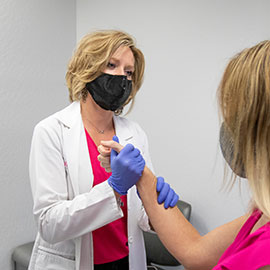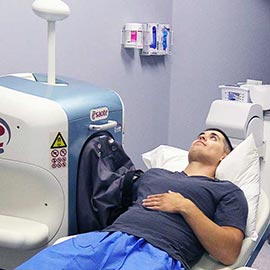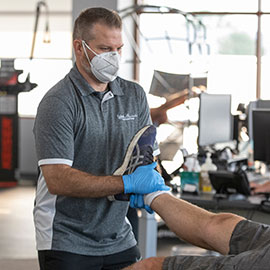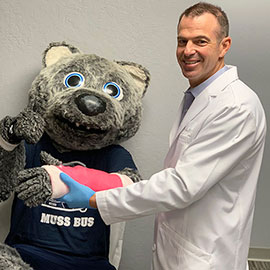Arm, Hand, Shoulder Pain
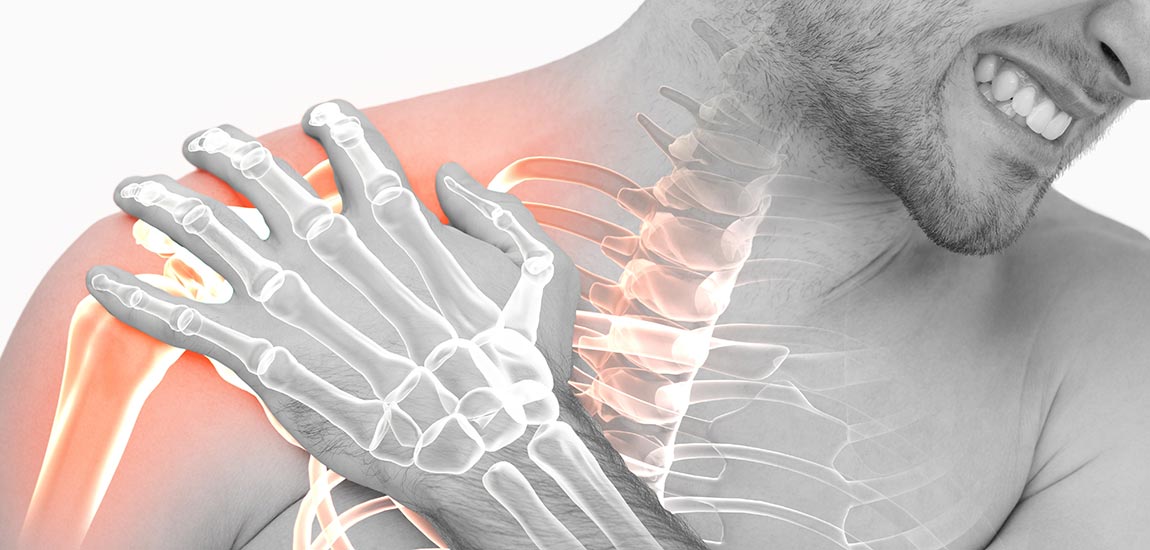
If you work at an office, one on-the-job injury that can occur over time is a hand injury known as carpal tunnel syndrome. Hands, arms and shoulders can suffer injury from sports, arthritis, congenital deformities, and repetitive stress.
Common types of injuries are:
• Fractures and sprains
• Carpal tunnel syndrome
• Tendonitis
• Arthritis
• Lacerations or Nerve and tendon injuries
• Rotator cuff tear
• Shoulder pain and instability
• Ganglion cysts
• Tennis elbow or Overuse injuries of the elbow
Dislocated Shoulder
A dislocated shoulder can be either partially dislocated or fully dislocated. Causes of dislocated shoulder include a trip or fall or contact sports such as basketball, football or soccer.
A hard hit or fall can result in the arm dislocating from the shoulder socket. Symptoms of a dislocated shoulder include swelling, numbness, weakness and bruising. A medical provider will pop the arm back into place and a sling will be worn following the treatment. Follow up orthopedic care including physical therapy will be necessary until stability is regained.
Tennis Elbow (Golf Elbow)
Tennis elbow (lateral epicondylitis) or golf elbow is often due to overuse but may also occur as a result of sudden impact. The injury isn’t limited to athletes and can be described as tiny, painful tears in the ligaments and muscles around the elbow. Poor circulation in the tendons in the location where they attach to the bone is thought to be why the tendons fail.
Symptoms may include radiating pain down the arm most commonly on the outside of the elbow bone called the epicondyle.
Painful symptoms of golfer's elbow is usually felt on the inside of the epicondyle.
Treatment recommendations:
Avoid participating in the repetitive activity causing the pain this will result in pain relief can help relieve inflammation.
• In early stages of this injury, time is the best remedy to heal the tears.
• Anti-inflammatory medications such as Advil may help alleviate the pain and reduce swelling in the arm. If pain continues, consider visiting an orthopedic specialist. Swift Urgent Clinic is staff by orthopedic provider with experience in treating upper extremity injuries such as tennis elbow and golf elbow. The orthopedic provider will develop a treatment plan to relieve the symptoms that may include an ice, rest, compression straps, injection therapy, physical therapy and / or an at home exercise program.
• Injection therapy in the elbow is interesting in that unlike most medication injections, pain relief may actually result from the needle puncture to the tendons instead of the medication itself.
Elbow Bursitis
A bumper on a car helps prevent injury to the main part of the vehicle. A similarity can be found in the elbow. Our bodies have "bumpers" that help protect the elbow joint between the skin and our elbow bone. The “bumper” is called the bursa or small sacs of fluid that reside between the skin and the bone to allow easy, pain-free movement.
If you’ve ever rested your elbow on a surface for too long, you may have started experiencing pain or a red tint on your elbow. These symptoms that your elbow needs a rest. Chances are if you continue to put weight on your elbow, inflammation and more pain will result.
Home remedies for elbow bursitis include anti-inflammatory medication such as Advil, ice and elevation to reduce blood flow.
If pain persists, visit an orthopedic specialized clinic such as Swift Urgent Clinic where the provider can assess your condition. The orthopedic provider may drain the bursa or inject corticosteroid into the arm for pain relief.
Rotator Cuff Tears
The shoulder is considered the most flexible joint in the body and tasked with performing a wide range of duties.
Because it can do so much, it’s also at risk for overuse injuries including rotator cuff tears that can be very painful.
Rotator cuff injuries are due to ligament or muscle tears in the shoulder. Poor posture and lifting techniques, falls and repetitive movements can all lead to rotator cuff tears.
Who’s at risk? Rotator cuff tears are more common in people over the age of 40 but can affect people of all ages.
Rotator cuff tears can be treated without surgery. In many cases, medical providers will first recommend RICE (a period of rest from activities that cause pain to the shoulder, ice, compression and elevation of the shoulder above the heart to limit blood flow).
If the symptoms persist or if you have any of the following symptoms, please consult an orthopedic specialized provider. Swift Urgent Clinic has orthopedic specialized providers with particular experience in treating shoulder injuries.
• Pain when laying on the affected shoulder,
• Lifting the arm is uncomfortable,
• The pain is in the dominant arm,
• The shoulder makes noises with movement.
Swift Urgent Clinic has orthopedic specialized providers with particular experience in treating shoulder injuries.
